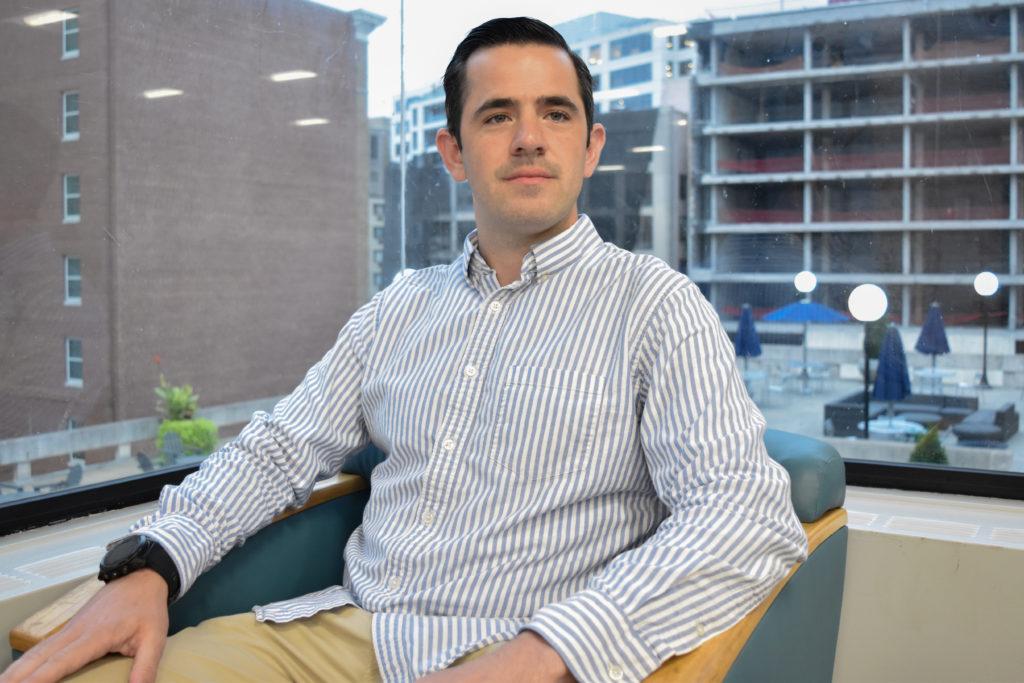A Student Association senator is suing the body that oversees SA elections, claiming the organization discriminated against some students when it postponed this year’s election to early April.
SA Sen. Jake Corsi, CCAS-G, filed a complaint with the Student Court Tuesday alleging the Joint Elections Commission violated the SA’s constitution and the Student Code of Conduct by failing to reschedule the election to a date when students can vote while on campus. He claims that holding a virtual SA election while students are off campus for the spring discriminates against international, low-income and rural students who may not have access to tools that allow them to vote online.
“Conducting a virtual election amid a global pandemic is nonsensical,” the complaint, obtained by The Hatchet, states. “Student Association leadership and the Joint Elections [Commission] have failed to appropriately evaluate the harms inflicted by their decision not to postpone the election. Their decision is not only morally wrong but also unlawful.”
Corsi – who is asking for expedited review of the complaint because of its proximity to the election, scheduled for April 8 and 9 – is requesting that the court reschedule the elections for the fall.
The complaint states that international students in areas largely impacted by COVID-19 will not have equal opportunity to participate in elections. Low-income students and students in rural areas may also face restrictions in participating, which is discrimination based on a student’s family status and prohibited in the SA’s constitution, Corsi states in the complaint.
He said in an interview that holding elections when leaders do not know the extent to which students are impacted by the COVID-19 pandemic, like a lack of WiFi or travel necessities, is “irresponsible.”
Corsi added that the court must decide whether to postpone the elections because the SA’s constitution and bylaws do not hold clauses relating to a national emergency like the U.S. Constitution. He said the court should follow the example of other states, like Ohio, that have postponed their primary elections in the wake of the pandemic.
“The uncertainty may have scared some student leaders into not really taking what I believe is the responsible decision and delaying the election until next semester,” he said. “There are just too many variables that haven’t been answered in terms of, ‘Will enough students be enfranchised?’”
SA elections were postponed in spring 2017 after the court found a candidate guilty of intimidation, harassment and making false statements to bolster her campaign. But then-president Erika Feinman and the senate-elect reversed the postponement decision and approved a measure that promoted the executive vice president-elect to president-elect when the presidency is vacant.
The court is requesting the JEC to respond to Corsi’s complaint by March 27 because of the “pressing concerns of the case and its time sensitivity,” according to an email that SA Chief Court Justice Wayne Arminavage sent Tuesday. If the court does not receive an answer from the JEC by Friday, the body may “exercise its expedited review power,” the email states.
Justices can release a decision within a day or two after events like a digital hearing to ensure the student body is immediately aware of the court’s decision, according to court procedures.
Arminavage said the court will focus on Corsi’s claims that the postponement to April violates the SA’s constitution rather than interpreting the Student Code of Conduct, which is out of the justices’ jurisdiction.
“We plan to use the machinations of the procedures and bylaws of the court as best we can to put forth an answer as soon as possible from the court,” he said.
Arminavage added the Student Court would be vacant in the fall if elections are postponed to next semester because current justices are graduating this spring and an SA president would not be appointed to select a new court.
Court justices must be nominated by the SA president and confirmed by a two-thirds senate majority approval, according to the body’s constitution.
Arminavage said the court faces a “legal bind” because student government bylaws don’t outline proper actions to regulate the postponement of SA elections.
“This is truly a matter of first impression,” he said. “As far as I can tell, there’s no precedent for this and obviously we are in uncharted territory.”
JEC Chairman Kyle Piekarski declined to comment on the JEC’s stance on the court decisions because the case is pending court review. Piekarski said he is “confident” all students will have equal access to vote because the University has provided internet access for students for online classes, which includes access to Engage – the online voting system.
“Any delay of the election is unfair to campaigns to the student body and is definitely not something that’s within the JEC’s power to support,” Piekarski said.
Logan Basch, the SA’s vice president for judicial and legislative affairs, said the SA supports any points or claims the JEC makes during the case.
“The SA stands behind the JEC in this lawsuit,” he said.








